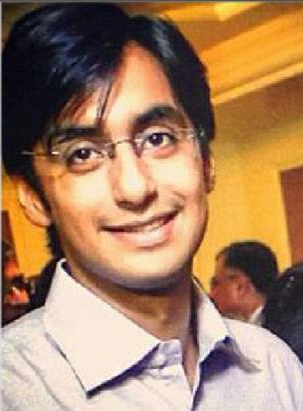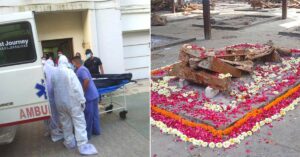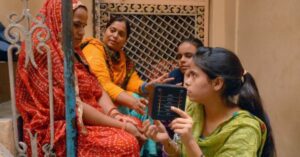How A 3-Year-Old Rape Victim Was Finally Given Justice
Delhi High Court gave a landmark judgement in a 3-year-old minor girl's rape case by overruling the judgement of Dwarka District Court to acquit the accused. Not only this, Delhi HC also asked the state government to bear all medical expenses of the child's treatment and consider the trial of minor victims in a more considerate way in the future. Here is all you need to know about the case.

Delhi High Court gave a landmark judgement in a 3-year-old minor girl’s rape case by overruling the judgement of Dwarka District Court to acquit the accused. Not only this, Delhi HC also asked the state government to bear all medical expenses of the child’s treatment and considered trial of minor victims in a more considerable way in future. Here is all you need to know about the case.
Monday, October 14, 2014 saw a landmark judgement when Delhi High Court overruled the earlier judgement passed by Dwarka District Court of acquitting the accused in the rape case of a three year old girl “Amal” (her name has been changed to protect her identity).
The Delhi High Court has also directed the state government to bear all the medical expenses to treat the child in a private hospital, if required. The trial court had earlier acquitted the accused, Sujeet Kumar, based on the fact that the victim’s testimony was not considered reliable by the court.
The final verdict has come as a huge relief to the victim’s family who has faced severe trauma over the past two years. Amal has already undergone two surgeries and might need a third one to recover from the injuries of the assault. The latest verdict will enable Amal’s parents, who are daily wage labourers, to get the best treatment for their daughter.  (Image for representation purpose only, Source)
(Image for representation purpose only, Source)
What exactly happened?
On October 6, 2012, Amal, a chirpy 3-year old girl was playing with her younger brother, when a man came by and took her under some pretext to a nearby jungle and allegedly raped her.
“I felt pain and wept. Then I returned home while weeping. My mummy and papa were not present in the home at that time. When my mummy came home, I narrated the incident to her. Then my mummy and some police officials took me to the hospital,” Amal said in the court.
When Amal’s mother, Tuniya, returned home she found her daughter missing. After some time, she found Amal naked with her face and head covered with mud and bleeding.
Amal was immediately rushed to the hospital. A few weeks later, she was taken to the magistrate for making the statement. This process was severely hampered because of the nature of questions posed to her during this meeting, especially because of the trauma that she was suffering from.
Why was the accused acquitted?
The major reason behind Kumar’s acquittal was the fact that the girl’s statement was not considered admissible as the trial court concluded that she wasn’t able to answer the magistrate properly.
“Amal was asked questions that were vague and her testimony was disregarded without any basis” said Amal’s mother.
The Appeal
iProbono is an organization that connects lawyers with civil society organizations to do pro bono work (read more about them here). They organized a child welfare forum where several NGOs participated to discuss legal issues that they were facing. Haq Centre for Child Rights was also part of the forum and they brought this case to iProbono’s attention. The latter immediately took up the case, reviewed the papers and worked with criminal lawyers to bring justice. Gautam Khazanchi and Utkarsh Saxena, both criminal lawyers, represented Amal in court.

Before the Delhi High Court, Amal’s lawyers made four major arguments:
- The questions posed by the Magistrate were not appropriate to judge the competence of the child. They even asked the child the name of her school when she was just 3.5 years old and did not attend school. Hence, the trial court’s conclusion that the child was not a competent witness was wrong.
- The clothes worn by Kumar were seized and when tested, blood stains found on his underwear were proved to be Amal’s.
- The accused initially refused to be part of the identification procedure, and this fact was ignored by the trial court. It was again brought to the notice of the high court.
- The child identified the accused repeatedly, and he did not back up his defense argument that he was being framed with any supporting explanation.
“These key arguments seem to have led the High Court to overrule the district court’s judgement. The sentence to be awarded to the accused will be decided at a hearing on 27th October,” says Swathi Sukumar, a practising advocate and Country Director, iProbono.
The high court criticized the district court’s approach of the trial in questioning the minor victim. The judgement also placed importance on the need of ensuring competent legal assistance to the survivors of child abuse, especially those from economically disadvantaged backgrounds.
Though the trauma undergone by the child and her caregivers cannot be erased, the recent judgement has given some relief and a sense of closure to the child and her family. Having gone through several procedures at court and hospital with other financial and social challenges, the decision will surely give the family strength to rebuild their lives. Amal, who has been constantly seeing hospital wards and court rooms at such tender age will soon be attending school once she is declared medically fit.
We applaud the decision by Delhi High court and hope that the guidelines laid down by the court are followed in all future cases involving children. Do take a look at the judgement document embedded below to get complete details about the case:
Like this story? Or have something to share? Write to us: [email protected], or connect with us on Facebook and Twitter (@thebetterindia)
This story made me
- 97
- 121
- 89
- 167
Tell Us More
We bring stories straight from the heart of India, to inspire millions and create a wave of impact. Our positive movement is growing bigger everyday, and we would love for you to join it.
Please contribute whatever you can, every little penny helps our team in bringing you more stories that support dreams and spread hope.




















